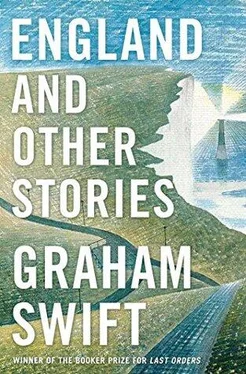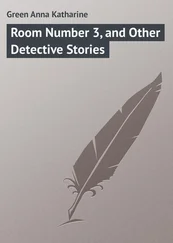‘Flat four, Romsey Court, Neville Gardens, Mitcham.’
‘You just said you were on the way to Poland.’
‘That’s right. Haven’t you noticed all the Polish people? They do the plumbing, the cleaning, the central heating. They mow the lawns. They do it all for us.’
‘Do you live alone there, at the address you just gave me?’
‘I don’t live there any more, do I?’
‘Do you have a husband, Nora?’
‘Yes.’
‘Where is he?’
‘He went to Poland.’
‘When did he go there?’
‘1944.’
‘1944?’
‘June the 18th, 1944.’
‘That’s a long time ago. You said you were going there too.’
‘That’s right. I’ll soon be seeing him, won’t I? I just have to find him. Or he’ll have to find me. Perhaps you can help us, dear.’
‘Do you have any sons or daughters, Nora? Brothers, sisters?’
‘Relatives, you mean?’
‘Yes, relatives.’
‘I have a son. Ted.’
‘Where does he live?’
‘He went to Poland. He’ll be with his father. He’ll be there too.’
‘We should let your son know that you’re here.’
‘Of course you should. And his father. They’ll both want to know I’m here. You should go and find them for me, dear.’
‘I mean we should let your son know that you’re here, in hospital, that you’ve had a funny turn. If he’s your next of kin.’
‘Kinski. People sometimes just called us the Kinskis. He went to Poland. 1964.’
‘You mean he’s really living in Poland?’
‘He got a job as a boilerman. In a hospital. He had to keep the boilers going that kept the hospital warm. They gave him a boiler suit.’
‘This is a hospital, Mrs Kinski. Sorry, Kaminski.’
‘It’s the way to Poland.’
‘You’re confused. You’ve had a nasty turn.’
‘He hung himself in the boiler room. He hung himself by the legs of his boiler suit. He went to Poland. He went to join his father.’
‘I’m getting confused, Mrs Kaminski.’
‘You said I was confused, dear.’
‘What did your husband do?’
‘He was a pilot. He went to Poland. 1944.’
‘He flew there?’
‘He flew into the English Channel. Haven’t you heard of all the Polish pilots? There were lots of them. They came over here. They shot down Germans for us.’
‘So your husband was from Poland.’
‘Lodz.’
‘Lots?’
‘The white cliffs.’
‘The white cliffs?’
‘The white cliffs of Dover. The English Channel. They never found him. Little Teddy was born after. He never knew his dad. But he’ll know him now, he’ll have known him for a long time. They’ll be getting ready to see me. You must tell them where I am. It’s been such a long time. It will be so lovely.’
‘I’ll take that blood now. It won’t hurt. I’ll just dab your arm.’
‘Pour it down the sink, dear, when you’ve finished. Down the sinkski.’
‘What was your husband’s name?’
‘Ted. He was Teddy too. I had to call little Teddy by his dad’s name, didn’t I? But his real name was Tadeusz. It’s a Polish name.’
‘Tadeusz.’
‘Tadeusz. Ted’s easier. Ted Kaminski. My two Teds, they’ll be here somewhere. Do you speak Polish?’
‘So you have no relatives, Nora? No living relatives we can inform?’
‘We’ll all be together. If you just run along and find them for me, when you’ve finished with that blood.’
‘We have to do some tests.’
‘He flew into the drinkski.’
‘Mrs Kaminski—’
‘It was a flying bomb, dear. It wasn’t the Battle of Britain. He got through all that. Do you remember the Battle of Britain?’
‘I’m twenty-five. I wasn’t born.’
‘Nor was little Teddy. You’d like little Teddy. I can see it, you and him. But I was the lucky one, I had his father. Not for long. Tadeusz Kaminski. He flew into the Channel. I married a Pole. I didn’t mind at all. The Germans invaded Poland. And we’ll all be in Poland soon, we’ll all be together.’
‘This is England, Mrs Kaminski. It’s Tooting.’
‘A flying bomb. He shot it down. He blew it up, then he flew into the sea. That’s what they told me. But it doesn’t matter now. We’ll all be together.’
‘Nora—’
‘They were coming over by the hundreds, nasty buzzy buzz bombs. It was worse than the Blitz. Nothing you could do, except not be under one. Fifty, a hundred people gone in a flash. If they landed on a school. Or a hospital.’
‘Mrs Kaminski—’
‘Just think about it, dear, just thinkski. If one of them dropped right now on this hospital. I know it’s a hospital. You must have a boiler room somewhere. But I’m not here for long, I’m on my way to Poland. Just imagine. If one of them drops we’ll all be gone. You, me, doctors, nurses, all gone in a flash.’
HIS FATHER HAD once said to him, ‘Money doesn’t buy you happiness, Adrian, but it helps you to be miserable in comfort.’
He’d wondered ever since at this equivocal utterance. Was his father saying that his own life had been miserable? Or that life itself, as a working premise, was miserable? These possibilities were suddenly dreadful.
All he’d done — though it had taken courage — was ask for more pocket money. He wished he’d never opened his mouth. Perhaps his father, who was rich and not given to utterances, had felt the same.
His father had died long ago anyway, and he’d heeded the recommendation — if recommendation it had been. He’d made money himself, lots of it. He’d made it when it was possible to make lots of it and he was one of those clever or lucky ones who’d got out before losing it, and put it where it could keep working.
Now here he was featherbedded with the stuff. Which was just as well, with an ugly divorce and an estranged family to pay for. Though all that, too, was now some time ago and all the bills had been settled. So, had his father’s words been only wise? And what counsel — the same? — had he given his own children? Hugh, Simon, Rebecca. He couldn’t remember giving them any counsel at all. He couldn’t remember them ever seeking it. They were all grown-up now.
He pushed the buggy which contained his daughter Lucy, though he was old enough, easily, to be her grandfather, listening to her wordless burblings and knowing that he loved her wholly, that right now he loved her more than anything in the world. She shouldn’t really be there, she shouldn’t be there at all. He already had, he’d already raised, a family. He shouldn’t be pushing a helpless infant still years from articulate speech on a journey to the park. Yet he was, and he loved her completely and loved her burblings as if there were a string running directly from his heart to hers. He loved her as he couldn’t, in all honesty, remember quite loving his other, now adult children.
Whenever his new young wife Julia urged him to take Lucy for a buggy ride to the park so that she, Julia, could have some respite, he tended to feign reluctance or even resentment, for the simple reason that he didn’t want Julia to know that he really loved doing it. Nor did he want her to know that, though Lucy could sometimes be impossible at home, she instantly became utterly sweet-tempered once she felt him pushing her along.
He loved being alone with Lucy perhaps more than he loved being alone with Julia, though Julia, even after a difficult first pregnancy, was a beautiful slender woman with light brown hair, some twenty years his junior. Why, after all, had he fallen for her, then married her? But he knew (he wasn’t stupid) that the question was rather: Why had she inveigled him, seduced him into marrying her? Because she’d wanted a Lucy of course. A Lucy plus security.
Читать дальше












